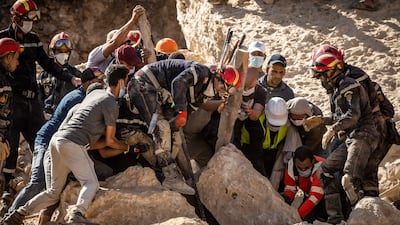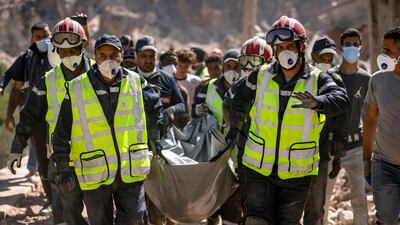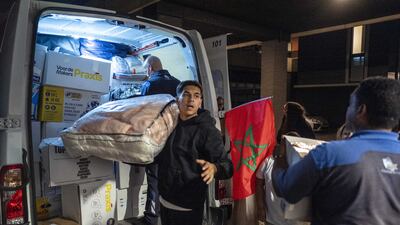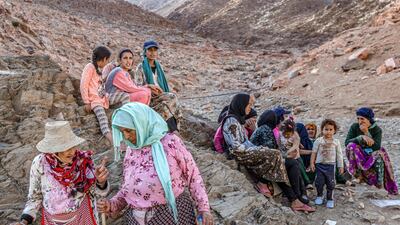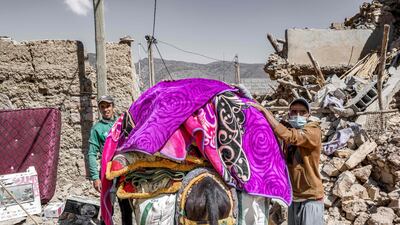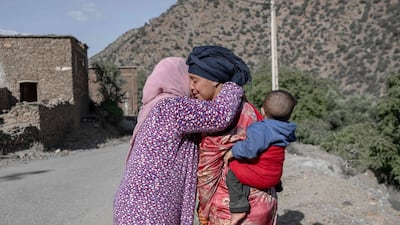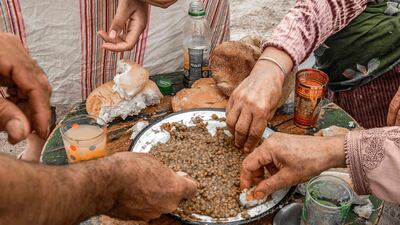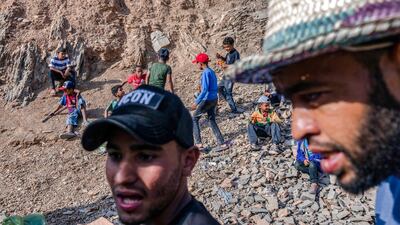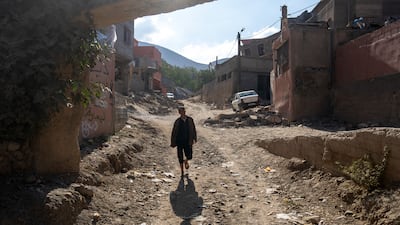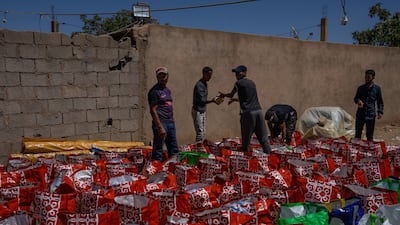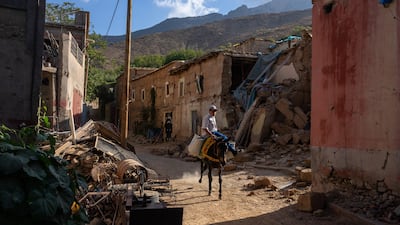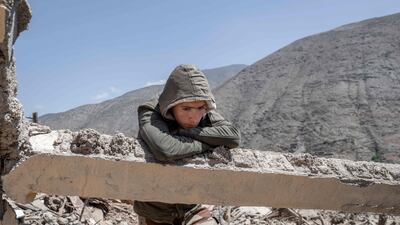Moroccan rescuers are working around the clock in the hope of finding survivors underneath the rubble after an aftershock late on Wednesday.
More than 2,900 people have been killed by the quake that has also left tens of thousands homeless.
Emergency crews from the UAE, Spain, the UK and Qatar were allowed into the country and have joined forces with local workers to dig through rubble for bodies still buried in devastated communities in the Atlas Mountains and other hard-hit areas.
The German Red Cross (DRK) on Thursday said it had been forced to cancel a plan to deliver aid to the country.
"For reasons beyond our control ... new rules and regulations announced at short notice have made it impossible for the plane to take off today," the DRK said, without giving further details.
"We deeply regret these developments because the people on the ground urgently need help."
The government said it is facing difficulties in delivering aid where it is most needed, because the areas where the earthquake caused the worst damage were in hard-to-reach mountainous regions.
This has left many waiting for days for official government help to arrive, as roads have been blocked and access is limited.
“The mountain was split in half and started falling. Houses were fully destroyed,” a resident, Ait Ougadir Al Houcine, told the Associated Press on Tuesday as crews worked to recover bodies, including his sister's.
“Some people lost all their cattle. We have nothing but the clothes we’re wearing. Everything is gone."
People have been depending on relief arranged and delivered privately by small groups of volunteers from across the country.
Morocco has allowed a limited amount of earthquake aid into the country, saying this is due to lack of management.
The government has only allowed response crews from four country countries and some non-governmental organisations.
Camera crews from France, Spain and Qatar's Al Jazeera television set up operations near where Moroccan emergency responders – along with crews from Qatar, Spain and international NGOs – used jackhammers to break up rocks as they sought to recover a woman's body from under a crumbling house that looked like it could fall at any moment.
She probably died because – unlike the buildings that fell in Turkey and Syria's earthquake earlier this year – the mud bricks used to build homes in Imi N'Tala left little space for air that trapped people would need to survive, Patrick Villadry of the French rescue crew, Ulis, told AP.
“When we dig, we look for someone alive. From there, we don’t ask ourselves questions. If they’re alive, great. If they’re dead, it’s a shame,” he said, noting that recovering the dead was important for Moroccan families.
Mr Villadry's five-person, four-dog crew from Nice was among the few French NGOs to have made it to the disaster site. It arrived on Saturday, he said.
Although the government has warned that poorly co-ordinated aid “would be counterproductive”, the response has prompted scepticism among some Moroccans, including Brahim Ait Blasri, who watched the recovery attempts in Imi N'Tala.
“It's not true. It's politics,” he said, referring to Morocco's decision not to accept aid from countries such as the US and France. “We have to set aside our pride. This is too much.”
